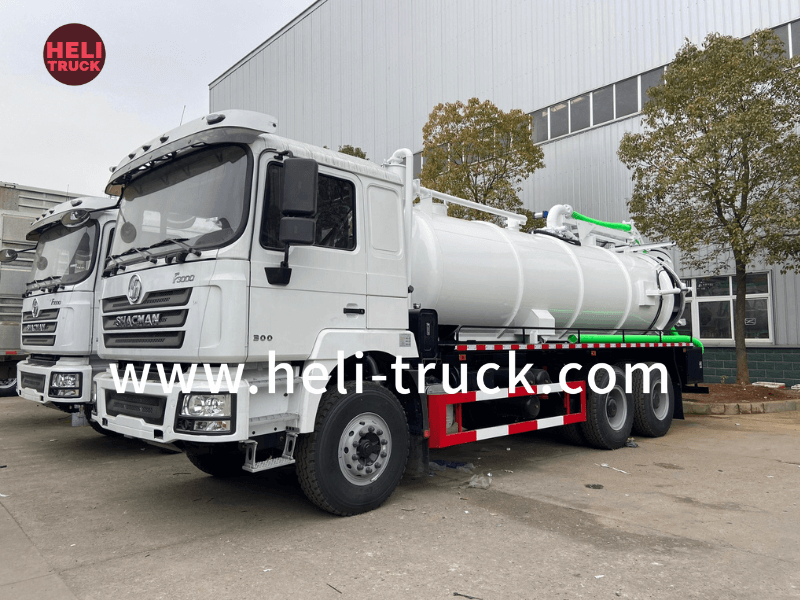Introduction:
Waste management is a critical aspect of modern society, with the proper disposal of garbage being essential for maintaining public health and environmental sustainability. Garbage compactor trucks play a vital role in this process by collecting and transporting waste to disposal sites. In recent years, the integration of Global Positioning System (GPS) technology in these trucks has revolutionized the way waste management operations are conducted. This article explores the benefits, challenges, and future prospects of using GPS technology in garbage compactor trucks.
1. The Role of Garbage Compactor Truck s in Waste Management
Garbage compactor trucks are specially designed vehicles used for collecting and compacting solid waste from residential, commercial, and industrial areas. These trucks are equipped with compactors that compress the waste to maximize the amount that can be transported in each trip. The collected waste is then transported to transfer stations, recycling facilities, or landfills for disposal.
The efficiency and effectiveness of garbage compactor trucks are crucial for maintaining cleanliness in urban areas and ensuring the timely removal of waste. Traditional waste collection methods often rely on fixed schedules and routes, which can be inefficient and result in missed collections or overflowing bins. The integration of GPS technology in garbage compactor trucks has revolutionized waste management by providing real-time tracking and monitoring capabilities.
2. The Benefits of GPS Technology in Garbage Compactor Trucks
The integration of GPS technology in garbage compactor trucks offers a wide range of benefits for waste management operations. Some of the key advantages include:
2.1 Real-time Tracking: GPS technology allows waste management companies to track the location of their compactor trucks in real time. This enables managers to monitor the progress of collection routes, identify any deviations or delays, and optimize truck deployment based on current demand.
2.2 Route Optimization: GPS technology enables waste management companies to optimize collection routes based on factors such as traffic conditions, proximity to waste collection points, and the volume of waste to be collected. By identifying the most efficient routes, companies can reduce fuel consumption, minimize travel time, and improve overall operational efficiency.
2.3 Improved Customer Service: GPS technology enables waste management companies to provide accurate and reliable information to customers regarding collection schedules and expected arrival times. This helps to enhance customer satisfaction and reduce complaints related to missed collections or delays.
2.4 Enhanced Safety and Security: GPS technology allows managers to monitor the speed and location of compactor trucks, ensuring that drivers adhere to safety regulations and designated routes. In the event of an emergency or breakdown, GPS technology can also be used to quickly locate and assist drivers, improving overall safety and security.
2.5 Data Analysis and Reporting: GPS technology generates valuable data on waste collection operations, including route efficiency, collection volumes, and driver performance. This data can be analyzed to identify trends, optimize operations, and make informed decisions regarding resource allocation and future planning.
3. Challenges and Considerations
While GPS technology offers numerous benefits for garbage compactor trucks, there are also challenges and considerations that need to be addressed:
3.1 Initial Investment: The integration of GPS technology in garbage compactor trucks requires an initial investment in hardware, software, and training. Small waste management companies may face financial barriers to adopting this technology, although the long-term benefits often outweigh the upfront costs.
3.2 Data Privacy and Security: GPS technology raises concerns regarding data privacy and security, as it collects and transmits information about the location and activities of compactor trucks. Waste management companies must implement robust data protection measures to safeguard sensitive information and comply with privacy regulations.

3.3 Maintenance and Support: GPS technology requires regular maintenance and technical support to ensure optimal performance. Companies must have a dedicated team or service provider to address any technical issues, software updates, or hardware malfunctions that may arise.
3.4 Driver Training and Acceptance: The successful implementation of GPS technology in garbage compactor trucks depends on the training and acceptance of drivers. Some drivers may be resistant to adopting new technology or feel that GPS monitoring infringes on their privacy. Companies must provide comprehensive training and communicate the benefits of GPS technology to drivers to ensure successful integration.
4. Future Prospects and Innovations
The use of GPS technology in garbage compactor trucks is expected to continue evolving with advancements in technology and data analytics. Some of the future prospects and innovations in this field include:
4.1 Predictive Analytics: GPS technology can be combined with data analytics and machine learning algorithms to predict waste generation patterns, optimize collection routes, and streamline operations. By analyzing historical data and environmental factors, waste management companies can proactively plan collection schedules and resource allocation.
4.2 Internet of Things (IoT) Integration: IoT devices such as sensors and cameras can be integrated with GPS technology to provide real-time monitoring of waste collection activities. This enables companies to track waste levels in bins, detect contamination or illegal dumping, and improve overall efficiency and transparency in waste management operations.
4.3 Autonomous Vehicles: The development of autonomous garbage compactor trucks equipped with GPS technology is a promising innovation in waste management. These vehicles can operate without human intervention, following pre-programmed routes and schedules to collect and transport waste. Autonomous vehicles offer the potential to increase efficiency, reduce labor costs, and minimize environmental impact.
4.4 Sustainability Initiatives: GPS technology can support sustainability initiatives in waste management by promoting recycling, reducing carbon emissions, and minimizing waste sent to landfills. By optimizing collection routes and promoting responsible waste disposal practices, companies can contribute to a more environmentally friendly and sustainable waste management system.
Conclusion:
The integration of GPS technology in garbage compactor trucks has transformed waste management operations by improving efficiency, enhancing customer service, and promoting sustainability. While there are challenges and considerations to address, the benefits of GPS technology far outweigh the drawbacks. Looking ahead, continued innovation and collaboration in the field of waste management technology are essential for advancing environmental stewardship and creating cleaner, more livable communities.
